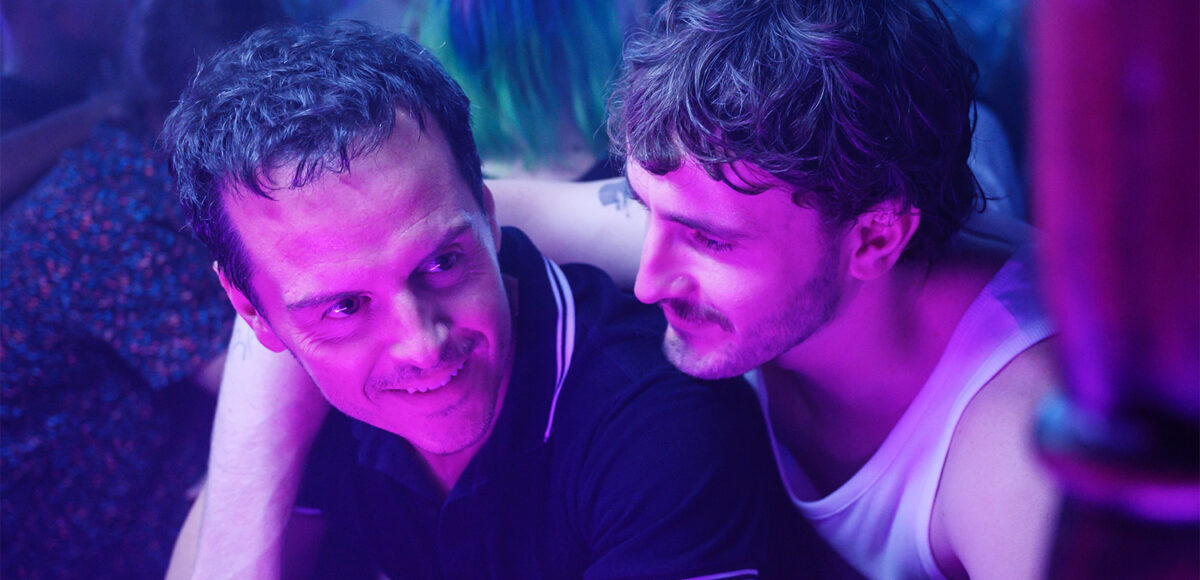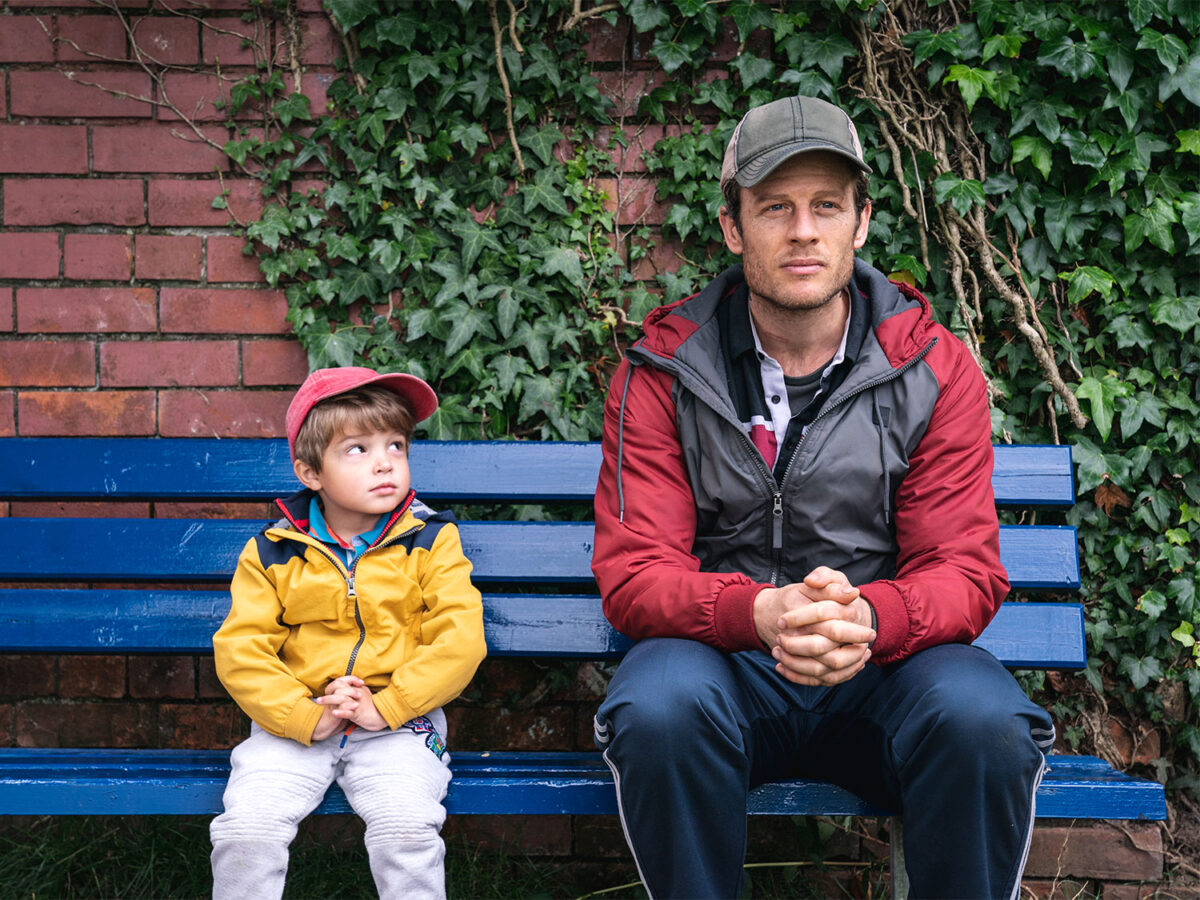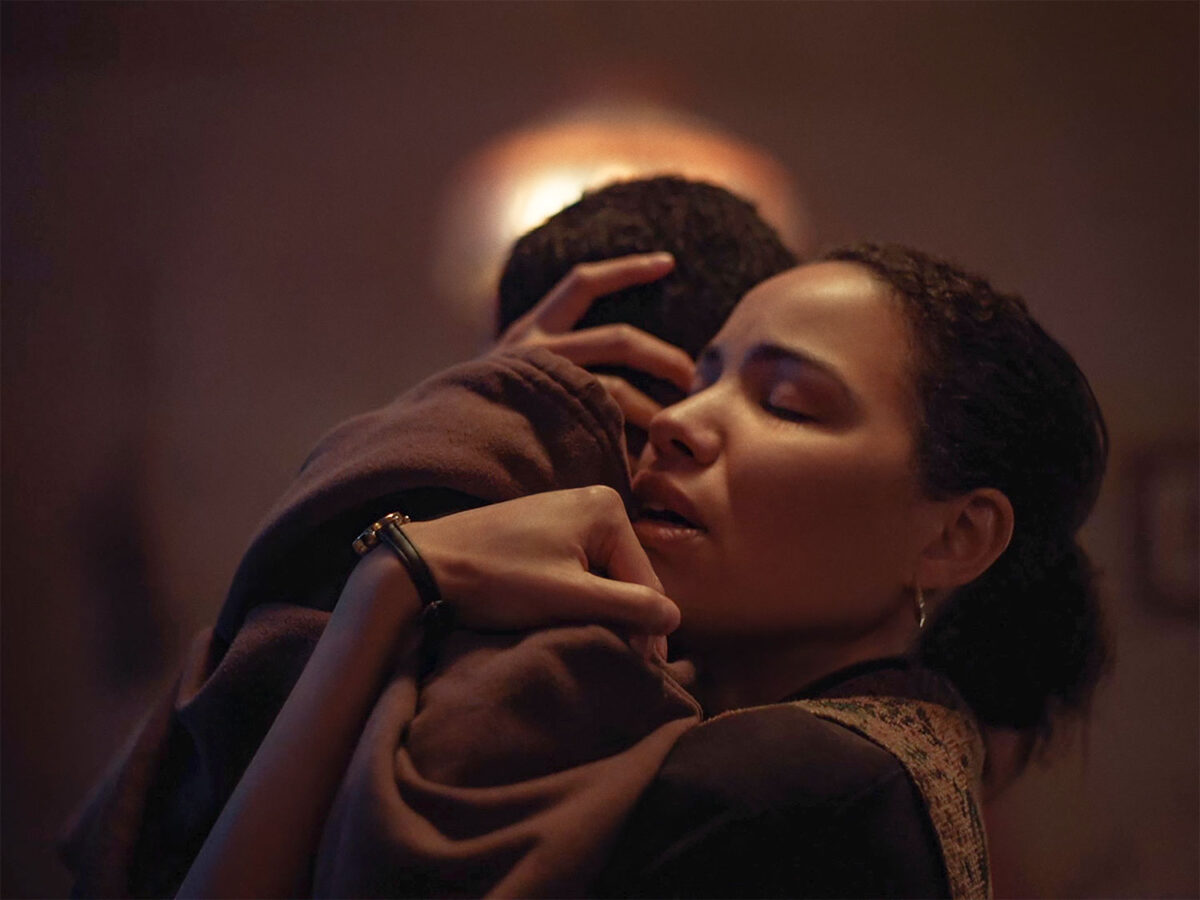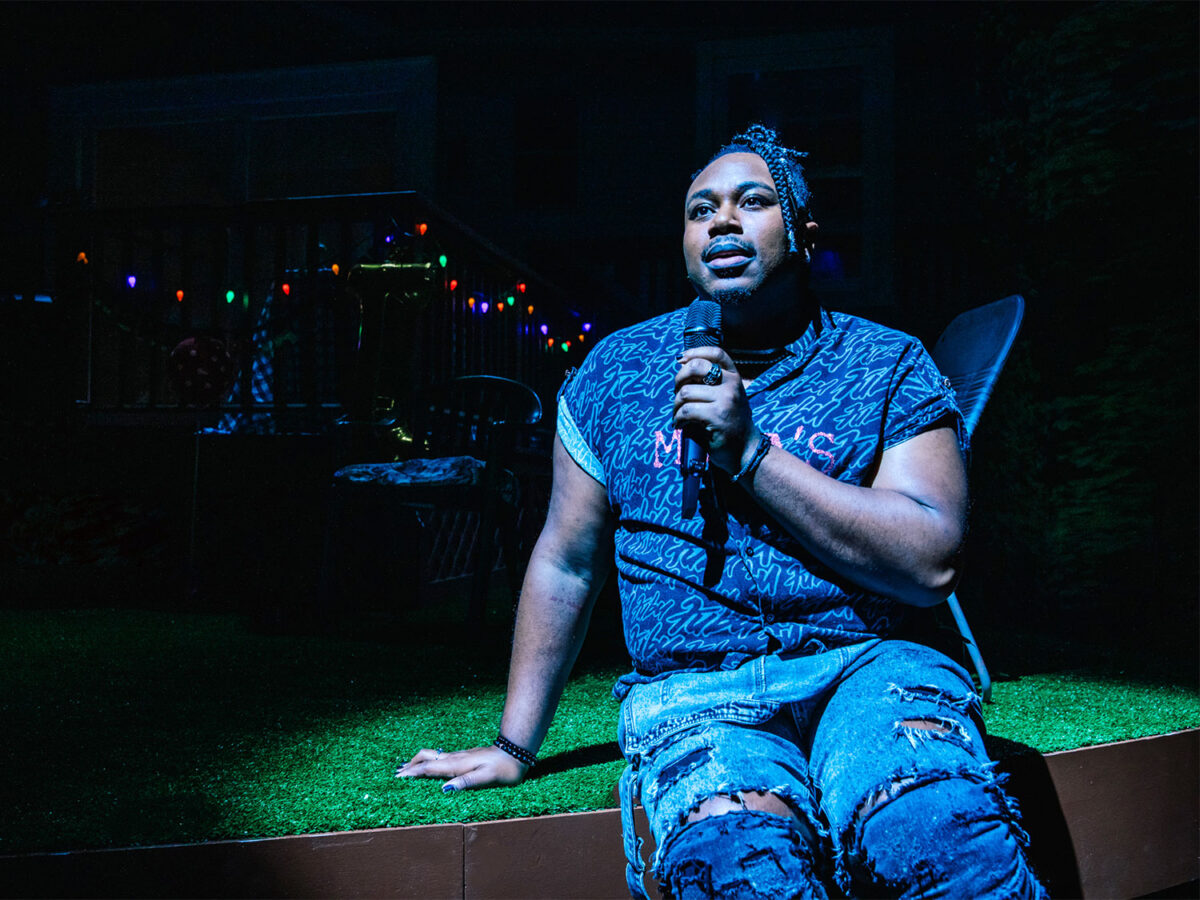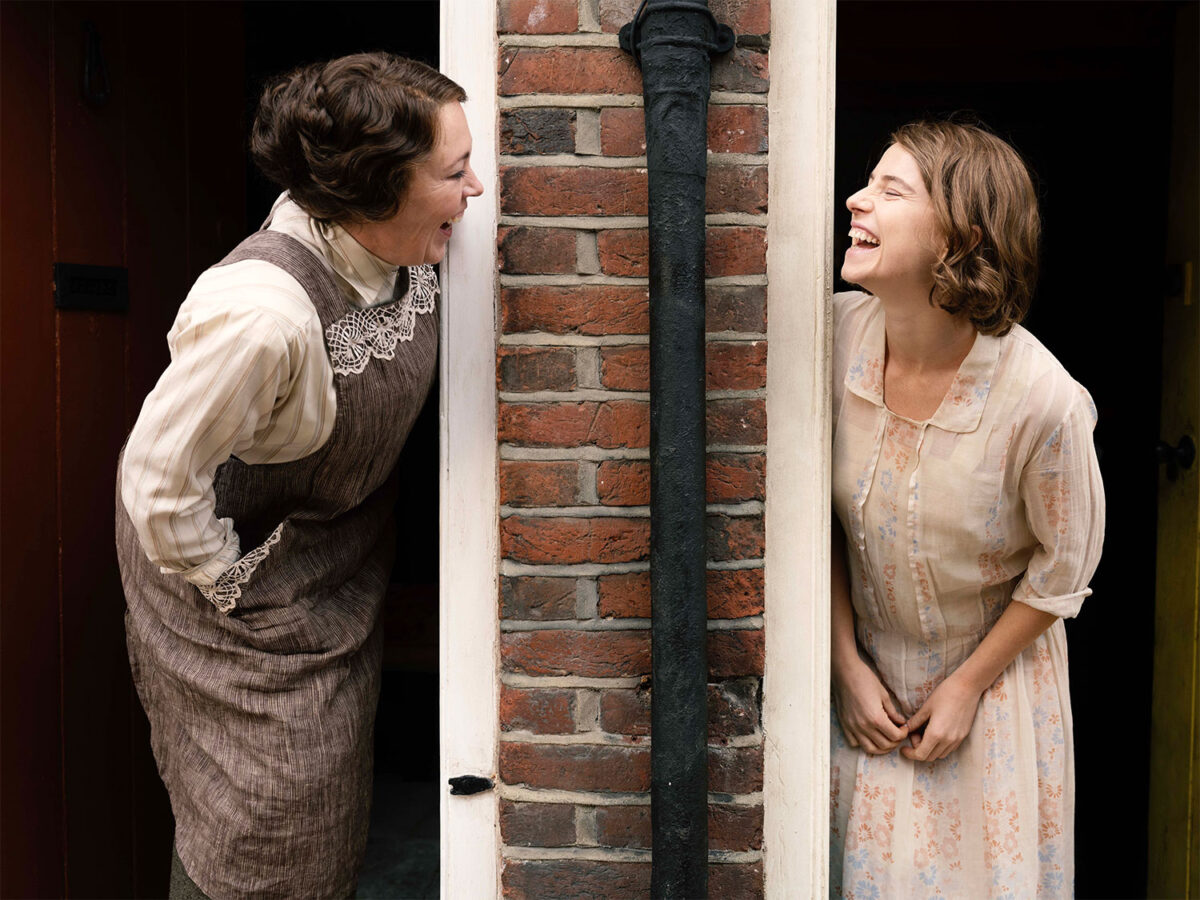“All of Us Strangers,” an enigma of a movie directed and written by Andrew Haigh based on “Strangers,” a novel by Taichi Yamada, will leave you off balance from its quiet, almost tedious start to its ending that may be only a beginning. Sound complicated? It is.
Adam, alone in his high-rise apartment overlooking the vast expanse of London in the background, sits at his typewriter in contemplation, writing “Exterior suburban house. 1987,” the opening for his next screenplay. Ill at ease, he squirms, wipes his brow, and like anyone who has ever experienced the writer’s block of knowing what you want to express and not knowing how to say it, he delays, walks around and fills the page with nothingness. There’s a knock at the door. Peculiar, because the high rise is essentially empty. Cautiously, he opens the door. Henry, a neighbor from downstairs, has noticed him and has brought up a bottle of scotch as an entrée and an outrageous statement, “There’s vampires at my door” as a come-on. Adam politely sends him on his way.
Adam returns to the personal angst of not knowing how to even start his process. Shuffling through some old souvenirs—a game, some photos, clothes—he hits upon an idea. Maybe returning to his childhood home will hold the answers. To the suburban train he goes, countryside flashing before him, so close and so far from London. Walking from the station toward his childhood home, he hesitates, knocks on the door and it’s answered. But it can’t be. She’s flesh and blood, not some ethereal presence, looking no older than him, his mother smiles from ear to ear. She just knew he’d come back someday, she tells her son; they have so much to catch up on. They sit, chat and she asks all the obvious questions, especially “Does he have a girlfriend?” Summoning up the courage, he hesitatingly informs her that he’s gay (Henry would call it “queer”). Clearly, she’s disappointed in his answer but even more, she has all the questions and fears that someone being told this in 1987 would have had. And that’s the first hint, besides her youthful appearance, that Adam has been given a window into a past that he didn’t experience. Adam, now in his 40s, was orphaned at the age of 12 when his parents died in a car accident. She’s not a ghost. They’re having a real-world conversation about real-world topics that tie her 1987 self to his 2023 reality.
Shaken, he returns home, changed in inexplicable ways. When meeting Henry a second time, he’s more open to a friendship. Getting to know each other, physically and emotionally, their relationship is established in Adam’s apartment. There is a desperation to Henry and a natural aloofness to Adam that must be overcome. Henry has the air of someone on the constant lookout for love; Adam, one could guess, has never looked, as they explore their burgeoning relationship in the kind of nightclubs with the kind of drugs Adam would never have considered in his staid past.
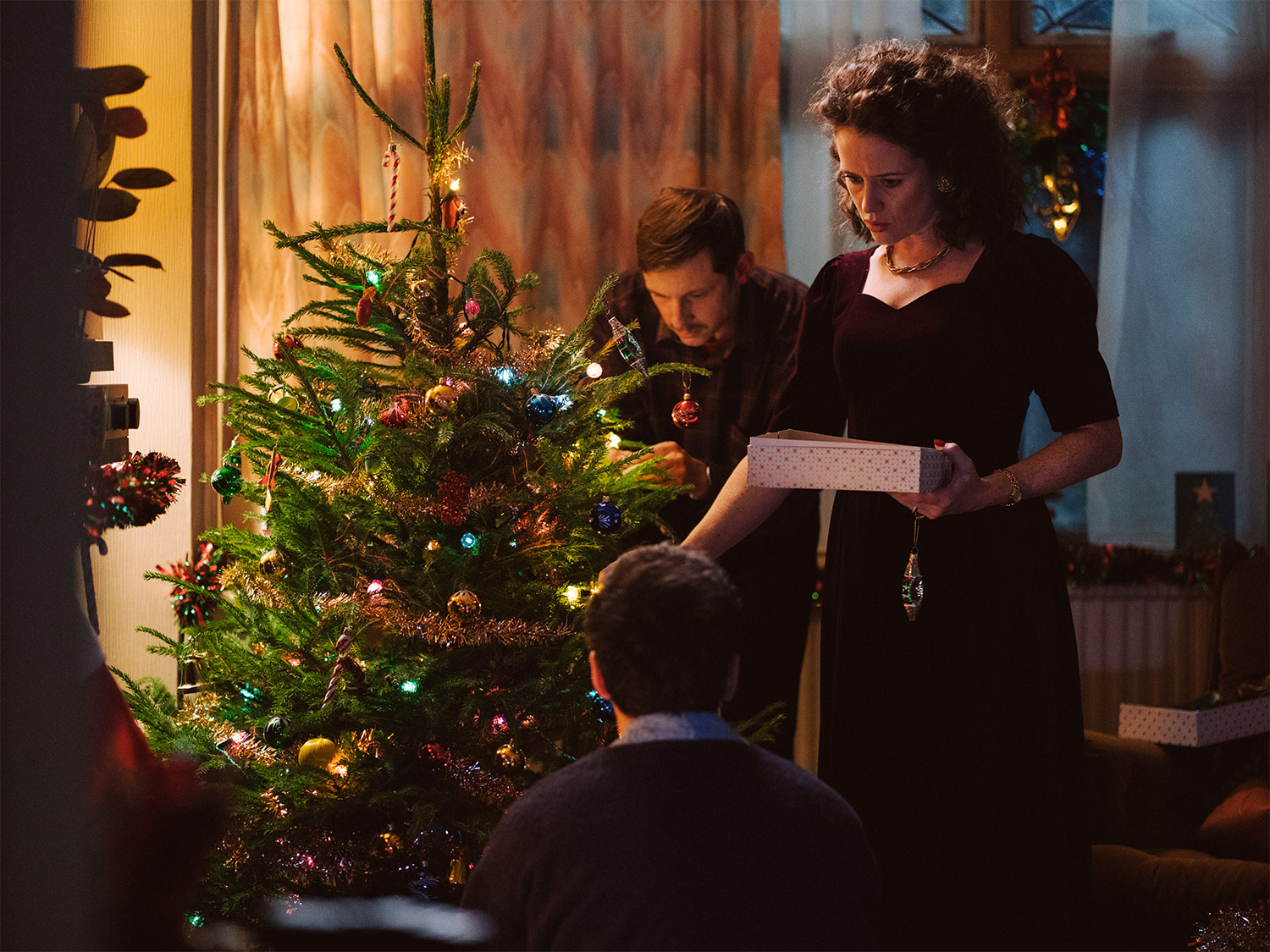
Photos courtesy of Searchlight Pictures
Overshadowing all for Adam, though, is that encounter with his mother. He is compelled to return in hopes of seeing his father who was away that day. This time he is greeted by both parents. It’s obvious that his mum has told his dad about their visit. Jovially, Dad embraces Adam and jokingly acknowledges that he probably already knew about Adam’s “proclivities” because no matter how hard he tried, Adam couldn’t throw a ball to save his soul.
The conversations are both deep and shallow, skirting emotions while at the same time embracing them. Adam has so many “whys” that were never answered because his time with his parents was so brief. Intriguingly, Haight has constructed a scenario fraught with meaning and hope. What if you were given the opportunity to go back in time and ask all the questions you had at the time; to confront parental decisions, both those that were made and those that should have been? What would your adult self have wanted to know from your childhood parents?
This is all Adam’s story—who he is, who he isn’t, who he can’t be and why—and inexorably he’s continually drawn back to his childhood home and his parents, frozen in the time before they would die in a car accident and stunt the emotional growth of their son to a life of all the “what ifs” and “if onlys.”
As he grows closer to Henry, a new experience for him, Adam wants to introduce him to his parents. Henry, adept at all the mannerisms of casual relationships and drug-enhanced experiences, is truly upended by Adam’s belief in his access to his dead parents. Even his parents believe that it’s time for Adam to move on, make connections in his own world and leave them behind once and for all. But is he capable of doing that? What is he truly and what is Henry?
Enigma is truly the operative word because the key to everything is in the last moments of the film when you will second guess everything you’ve seen and what it meant to you because it may mean something different to someone else. Everything, almost literally everything, is a metaphor. The empty apartment high-rise, the parents resurrected from their untimely demise, and Adam’s tentative first love affair all have secondary meanings, all of which you must discover on your own. Is the ending uplifting? Chilling? Depressing? Or is it a beginning? Who is alive, and what does alive mean? Hell may not be other people, but it may actually be purgatory.
Cinematography by Jamie D. Ramsay is almost transparent, focused as it is on Adam’s contemplative expressions. London, filmed from afar, is muddied and almost indistinct, purposely so. Instead, he and Director Haigh focus so many of their shots on the face of Adam, its angles, its beauty, its confusion.
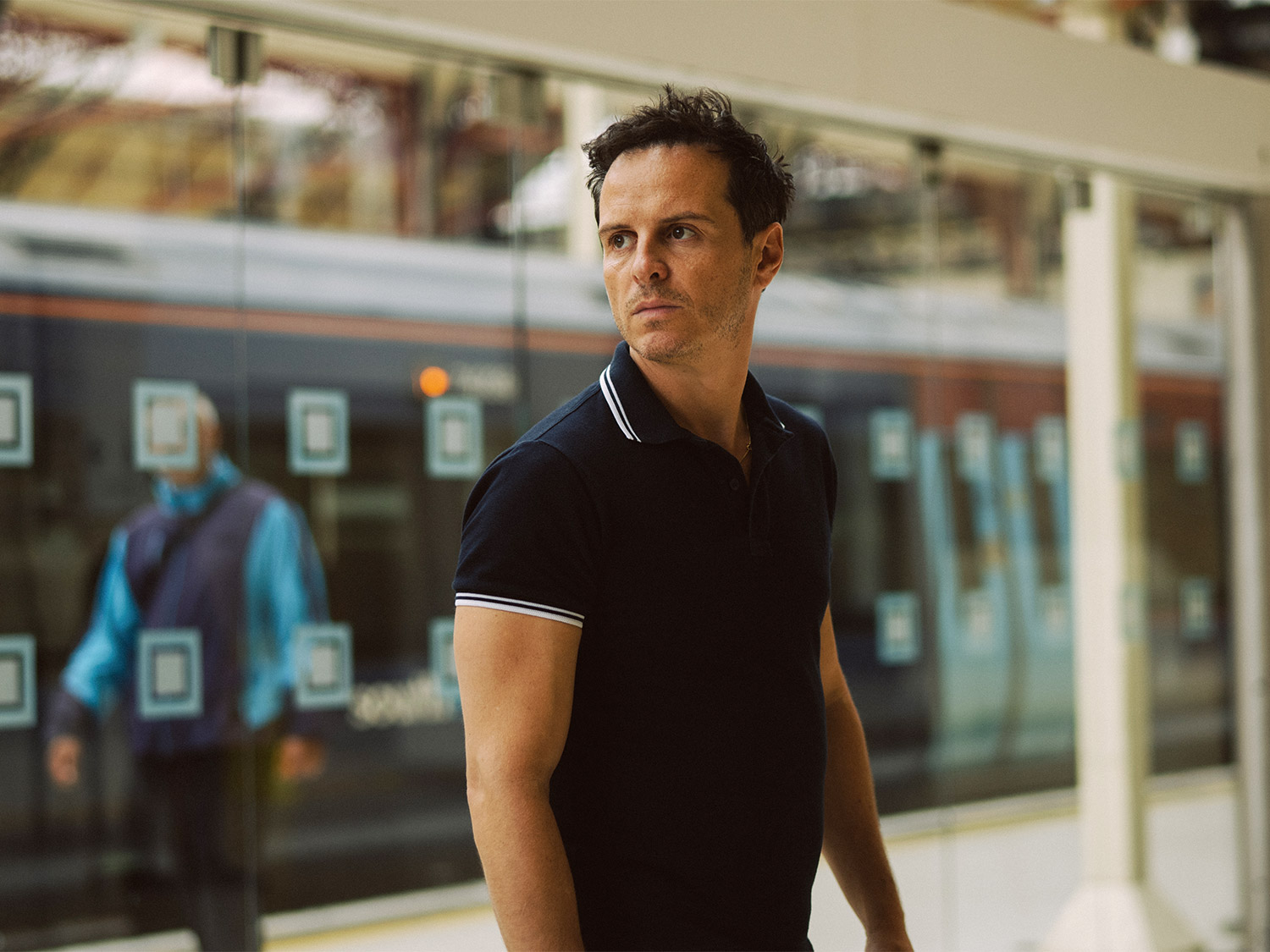
Although the beginning of the film seems rather tedious, actually it is really tedious and tiresome with its never-ending closeups of an agonizing Adam, it begins to pick up slowly with the introduction of Henry as the irritant to Adam’s placid existence. Henry is initially introduced in off-center camera angles, sometimes out of focus and other times hyper clear in contrast to the soft focus of Adam. Adam’s train rides to and from his childhood home are filmed such that the background passes at hyper speed, much like a time traveler would experience.
Haight’s cast is superlative. As the parents, Jamie Bell (“Billy Elliot”) and Claire Foy (“The Crown”) make credible a couple who accept at face value that they have received a visit from their now-grown son who was 12 when they died. They show all the discomfort one expects from parents who never asked the hard questions and failed their son before dying too soon. They are the sympathetic characters on which the foundation of the film is built and their naturalism has you believing that there could be the possibility of being frozen in time. Listen carefully because they hold the key to the how and why Adam has found them.
Paul Mescal’s (“Aftersun”) Henry is crazed, superficial and needy. His character propels Adam to a hitherto unknown emotional depth while ultimately detaching himself at the same time.
The film lives or dies, however, with Andrew Scott as the controlled Adam who gradually gives over to emotion for the first time. He makes you believe what he is seeing and ultimately unlocks the key to the purgatory he has been inhabiting. Scott has the ability to draw you in and hold your attention just with a small vocal inflection or his eyes filled with amazement.
To some, the languorous rhythm will be off-putting, but patience and perseverance will pay off as you gather up the clues left like Hansel and Gretel crumbs and find your way to a surprising end.
Opening December 22 at the AMC Century City.
Neely Swanson spent most of her professional career in the television industry, almost all of it working for David E. Kelley. In her last full-time position as Executive Vice President of Development, she reviewed writer submissions and targeted content for adaptation. As she has often said, she did book reports for a living. For several years she was a freelance writer for “Written By,” the magazine of the WGA West, and was adjunct faculty at USC in the writing division of the School of Cinematic Arts. Neely has been writing film and television reviews for the “Easy Reader” for more than 10 years. Her past reviews can be read on Rotten Tomatoes where she is a tomato-approved critic.



